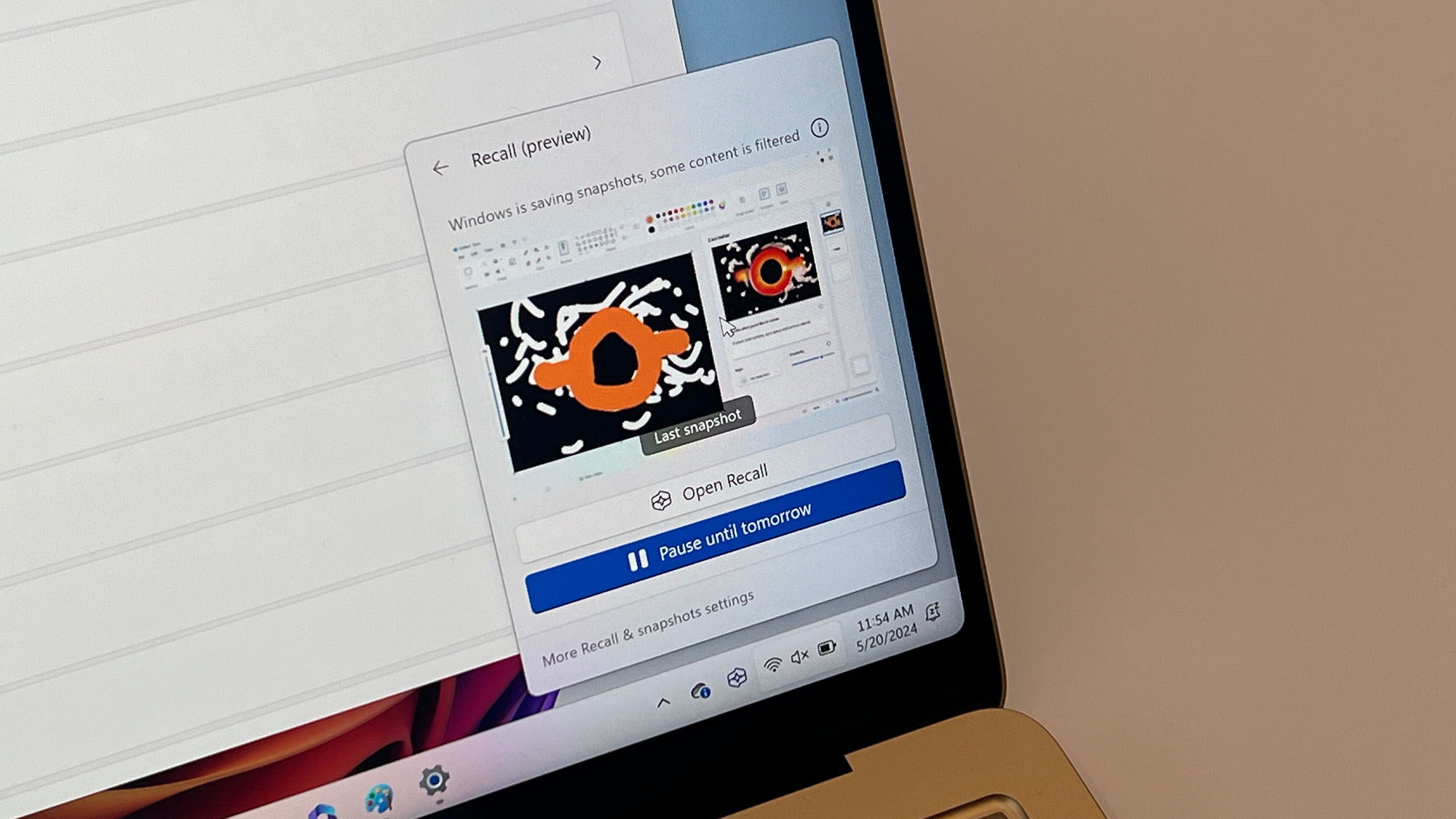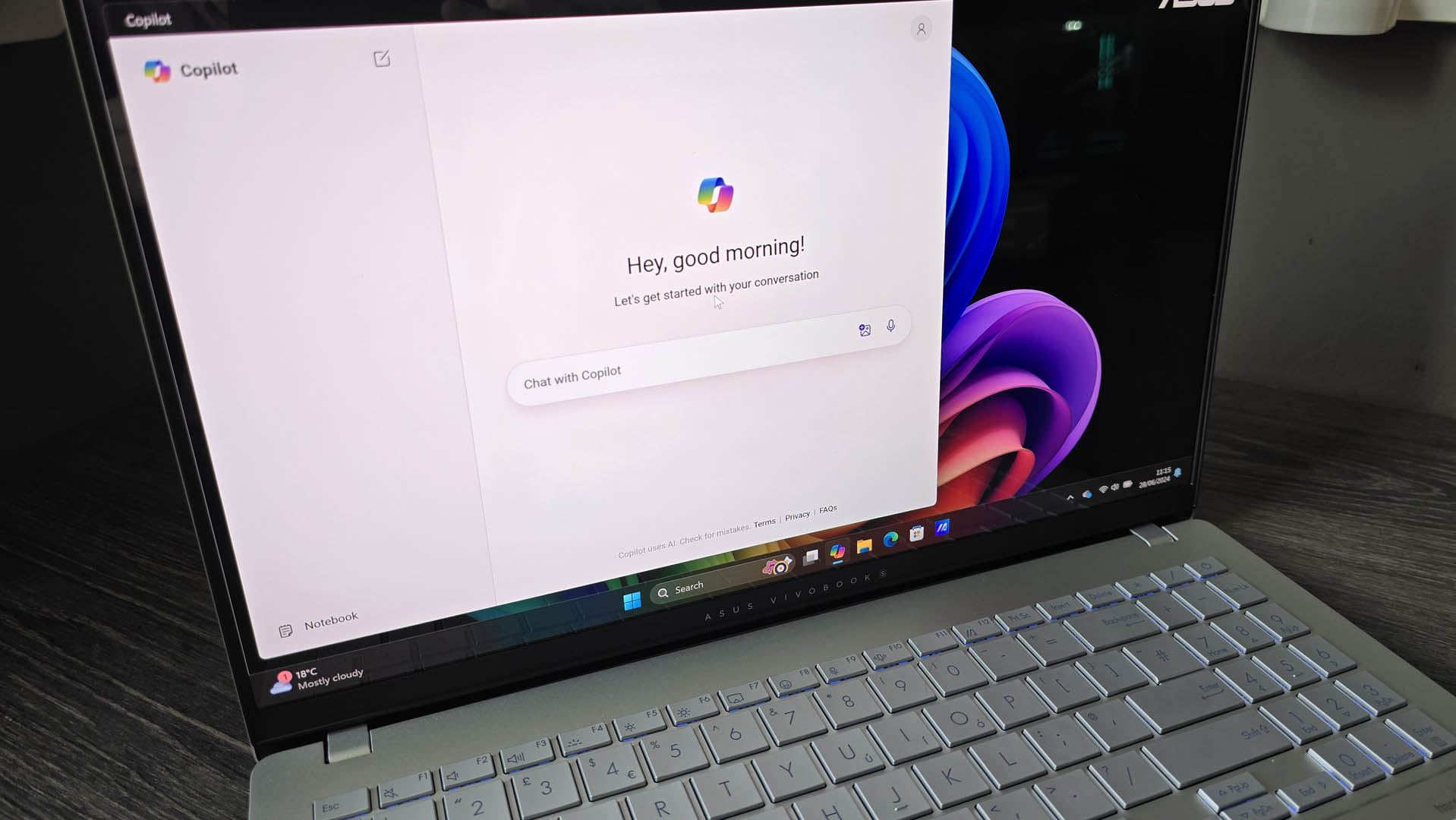Are you a Recall hater? Windows 11’s big AI feature may come with an option to uninstall it – but we wouldn’t count on it
New Windows 11 update hints at an option to fully remove Recall from Copilot+ PCs

Sign up for breaking news, reviews, opinion, top tech deals, and more.
You are now subscribed
Your newsletter sign-up was successful
Windows 11’s Recall feature has had a short but distinctly tumultuous existence, and following recent news of the AI-powered supercharged search returning to Windows 11 (in testing), we’re now hearing that Recall might come with the option to uninstall it – albeit with a weighty caveat.
Deskmodder, a German tech site, discovered that the latest Windows 11 update (an optional one that comes with a huge boost for modern AMD Ryzen CPUs) includes a stealthily-introduced choice to uninstall Recall.
This would be a big change of direction from Microsoft, as when first announced, the idea was Recall was fully built-in to Windows 11 (on Copilot+ PCs, as it requires a powerful NPU), but users could disable it if they didn’t want AI poking around in their files and regularly taking screenshots of everything that happens on their PC (which is a crude way of putting how Recall works).
To be able to strip it out entirely would surely be a boon for those more paranoid about these kind of AI features. Not having the code kicking about in your Windows 11 installation anywhere at all is clearly a step up from disabling Recall.
However, there’s a bit of extra spin on this one, as Windows Central, which noticed this development points out, the rules of Windows can be quite different in the EU to elsewhere.
As Deskmodder is a German website, it could be the case that Windows 11 in EU countries will get this option to completely remove Recall, whereas other regions won’t. After all, this is already the case for a number of Microsoft apps and services, including Edge and Bing to pick a couple of notable examples.

Analysis: A not so hopeful outlook
Sadly, we feel that if this comes to anything – and it may not – this is likely to be part of Microsoft’s measures to deal with tighter EU privacy and data regulations, than any move to actually give users more choice over what they should have present in their Windows 11 installation. The truth is Microsoft will want people to use Recall – and all its shiny new AI features – to make Copilot+ PCs look more innovative and useful, and therefore more likely to sell (which they are certainly predicted to do).
Sign up for breaking news, reviews, opinion, top tech deals, and more.
If Recall is right there in the OS, this makes it more likely for folks to use it, quite simply. Microsoft won’t want a situation where the feature can be completely ripped out, so if a user happens to be mulling using it down the line – and they took it out before – it feels like an extra hassle to reinstall Recall, maybe leading to them not bothering.
We can’t see it any other way but Microsoft wanting to have Recall in the background, with it disabled, rather than any other route. We may, of course, be wrong – and we hope so – because it wouldn’t hurt for the particularly cautious to get a way of completely removing Recall.
Microsoft will, however, be very careful about how it treads with the way Recall is implemented now it’s heading back to testing. When Recall was first announced, there was a storm of controversy immediately, which only worsened as people fudged their Windows 11 installations to play with the feature early – opening cans of security and privacy-related worms left, right and center.
It was supposed to be released in preview on Copilot+ PCs, but Recall was dropped from the launch of these AI laptops, and shuttled off to Windows 11 preview builds instead – except that soon after, Microsoft dropped the idea of testing Recall with Windows Insiders, even, essentially going back to the drawing board with the feature.
In all honesty, we felt that was necessary – a thorough revamp for the feature, as Recall clearly hadn’t been thought through well enough – but Microsoft then stayed silent on the functionality for a long time, leading some to speculate about whether it might even be dead in the water perhaps. That’s not the case, of course, as Microsoft broke that lengthy silence just last week with the announcement that Recall is coming back to preview builds of Windows 11 in October.
To say its return will be watched with great interest would be an understatement – but whatever Microsoft has done with Recall, it better be very clear to the user what the feature is doing when offering the choice to enable it. (Recall will be off by default, by the way – another change Microsoft was forced into making).
You might also like...
Darren is a freelancer writing news and features for TechRadar (and occasionally T3) across a broad range of computing topics including CPUs, GPUs, various other hardware, VPNs, antivirus and more. He has written about tech for the best part of three decades, and writes books in his spare time (his debut novel - 'I Know What You Did Last Supper' - was published by Hachette UK in 2013).